Supernatural University: Meta Fiction – You Decide
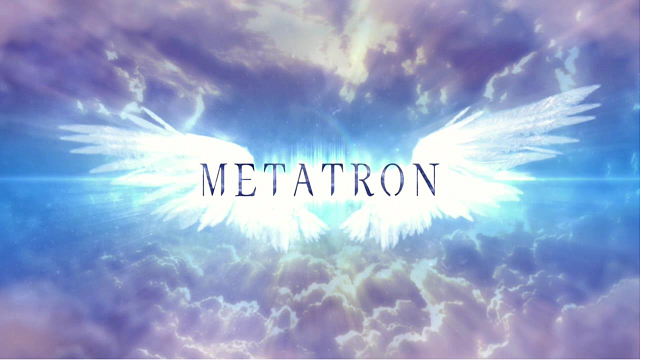
I loved all the aspects of Meta Fiction, including the meta ones. Robbie Thompson’s script was a profound brain teaser; Jensen Ackles’ depiction of Dean’s struggle with the effects of the Mark of Cain was masterfully subtle; Jared Padalecki brought Sam’s worry over his brother and his rage at Gadreel and Metatron into his every move and look; and Misha Collins’ Castiel, Curtis Armstrong’s Metatron, and Tahmoh Penikett’s Gadreel were all pitch-perfect. And Richard Speight Jr.’s surprise appearance as Trickster Gabriel – even if he wasn’t really real – was pure delight. I loved Thomas J. Wright’s direction; he’s rapidly ascended to my top echelon of directors.
But since my time is limited (as usual, these days), I want to focus on what I see as Metatron’s (oh, and the delicious irony in his name these days!) failure to understand what he’s bitten off in his new role as Heaven’s latest god. I’m also going to say a few words about heroes and villains.
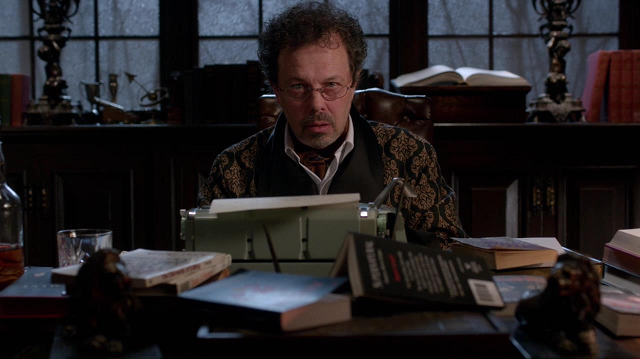
Let Me Tell You A Story …
In the beginning was God, and with God, Death. God created Heaven, Purgatory, Hell, and Earth. He designed souls born on Earth to be the continuous motive power for his structure, causing souls reaped by Death to be conveyed and provide power to the appropriate realm as determined by their lives and natures. Since God gave humans free will, however, they could also choose to defy their Reaper and remain as ghosts on Earth, but the consequences were dire. God dictated operational manuals for each aspect of his creation, transcribed in code on a series of stone tablets concealed on Earth and intended to be readable only by human prophets to facilitate the protection of the humans upon whose energy-producing souls the system was designed to depend.
To help guide his creation, God pitched stories to his chosen human prophets for them to write down and share. He even commissioned some of them to write their perception of the final chapter of his inspiration in a play we’ll call The Apocalypse: End Of Days. Did his playwright-prophets accurately capture his authorial intent? We don’t know, but given Castiel’s scornful comment about the Bible getting things more wrong than right, we might guess that the prophets – like Chuck misconstruing his vision of Sam in bed with Lilith as culminating in sex – might have misread the details. Or not.
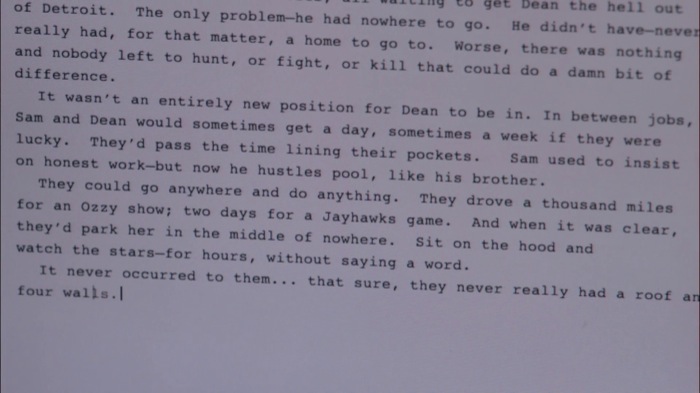
In any case, God didn’t immediately produce The Apocalypse when the prophets delivered the script. Instead, he put it on the shelf while the ongoing drama of human history played on the world stage. At some point, God left the theatre while the show played on. Some time later, the stage manager angels tasked with overseeing the house got bored with the continuing production, and decided to expand their role by producing the script God had left behind, intending to bring down the house in a burst of apocalyptic glory and free themselves to retire to the paradise promised by the script.
Being experienced stage managers, these particular angels – Zachariah and his ilk – were good at the logistics of production. They understood the need to construct the right sets and orchestrate the details carefully. Not being writers themselves, they took the script exactly as written and crafted everything about the show to match the words. The casting requirements for the lead characters were very specific, so the stage manager angels used the prophecy script as a recipe to cook up Sam and Dean Winchester precisely as ordered to be the perfect actor-vessels to play the key parts of Lucifer and Michael.
And that’s where things fell apart. Despite having been built from scratch precisely to embody what the script called for, Sam and Dean – as humans with free will – turned out to be actors who insisted on playing their own interpretation of the script and their characters. The stage manager angels proved to be total failures as directors, unable to bring the actors to share and commit to their vision of the play. Once on stage, the actors departed from the script, ignored their blocking, rewrote key lines, and changed the ending of the play to segue back into a continuation of the previous production. In the process, they evicted the stage manager angels. The various department heads the managers left behind – casting, lighting, costumes, and whatnot – started arguing about who deserved to take over the theatre management.
Okay: that’s a pretty wonky version of the previous seasons of Supernatural, but I don’t think it’s inaccurate. It also points out a meta piece of Meta Fiction that I’d like to concentrate on: my contention that Metatron has failed to understand his author role. He teased Castiel about the relative roles and importance of the writer and the reader – but he forgot that the story he’s dealing with is more than just words on a page. It’s not just a book being written by an author and interpreted by readers, oh no: it’s a script for a piece of performance art. It’s theatre. And theatre is a collaborative process, involving not only a writer and reader, but multiple readers and interpreters of the script who then combine to produce a performance, including actors, directors, and more.
Despite calling his work a script, I believe Metatron has missed the point: he keeps treating the story as if it’s a book, not a play. Once a book is published, it’s done, but that’s not the case for a play. Even when the writer of a play thinks he knows the ending, his work can be changed by the participants. A director can choose to cut or rearrange scenes. Even without changing the actual words, actors can play their lines in ways that totally change their meaning and impact. Metatron commented on being surprised by well-drawn characters doing unexpected things in the story, but dismissed the potential that those same characters might derail his anticipated ending despite their previous performances. Metatron is making the mistake of forgetting that Sam, Dean, Castiel, and the others in the story are more than just characters he’s writing: they are also the actors executing the performance. Sam and Dean, in particular, are already famous for rewriting the texts they were supposed to fulfill.
For all his pretensions, Metatron is emphatically NOT a writer. He was God’s scribe, but in that role he simply noted down God’s words. And although Kevin’s translations indicated Metatron sometimes annotated his writings, he didn’t contribute plot or character. Indeed, the tablets we’ve seen so far didn’t even constitute stories at all; they were technical manuals.
During his long exile in hiding on Earth, Metatron consumed and studied human stories, but that hasn’t made him a writer. He’s an intellectual critic, but his preoccupation hasn’t equipped him with the creativity to write compelling, absorbing stories of his own. He hasn’t displayed any complexity or depth, and his inexperience shows. He is no world-builder, able to construct an engrossing narrative within a logically constructed, consistent, cohesive story universe.
Put bluntly, Metatron’s a hack.
Just think about it. I submit Metatron exiled all the other angels and closed the gates of Heaven without fully thinking through or understanding the implications of his actions. He approached Gadreel afterward because he found Heaven lonely, and realized he needed other angels both for company and to keep the machinery of Heaven running. He chose Gadreel because he was confident he could manipulate him.
Despite having been God’s scribe, privy to the contents of the tablet manuals, Metatron plainly doesn’t grasp the technical details of running creation. For example, we’ve seen no evidence to date that he’s even realized yet Heaven is closed not only to angels, but to human souls as well; remember, before he threw the angels out, he told human Castiel to return and tell his story after his death. We learned in season six that souls were the currency of power in Heaven, Hell, and Purgatory, and we learned from Kevin’s ghost that no humans have been able to pass beyond the veil to Heaven since the gates were closed. Without a steady stream of souls entering Heaven, how long would Heaven’s power last?
I submit Metatron wrote himself impulsively into a corner, and I suspect his current plans to tweak things to his liking are similarly half-baked. He’s relying on rewriting constantly as he sees how things play out, learning which things work and which things don’t, rather than thinking through his plot, characters, and theme ahead of time to ensure that his story will flow organically to his desired climax and conclusion. He’s the kind of writer who relies on being able to pull a deus ex machina from his ass to make the story come out his way in the end, whether or not it makes any logical or emotional sense. But Metatron himself lacks the encompassing vision and forethought of God.
Mind you, all of my comments here are about Metatron, the character in the show. They are emphatically NOT directed at the folk in the Supernatural writers’ room. Unlike Metatron, I’m certain the writers know exactly where their story is meant to go. Each season has an arc, each episode is planned to fit within that arc; that’s how series television works. Details change and inspiration strikes along the way, but the whole is planned. And unlike amateur playwright Metatron, the show’s writers know they’re writing collaborative performance art and take into account (and greatly appreciate!) the contributions they’ll receive from the cast and crew.
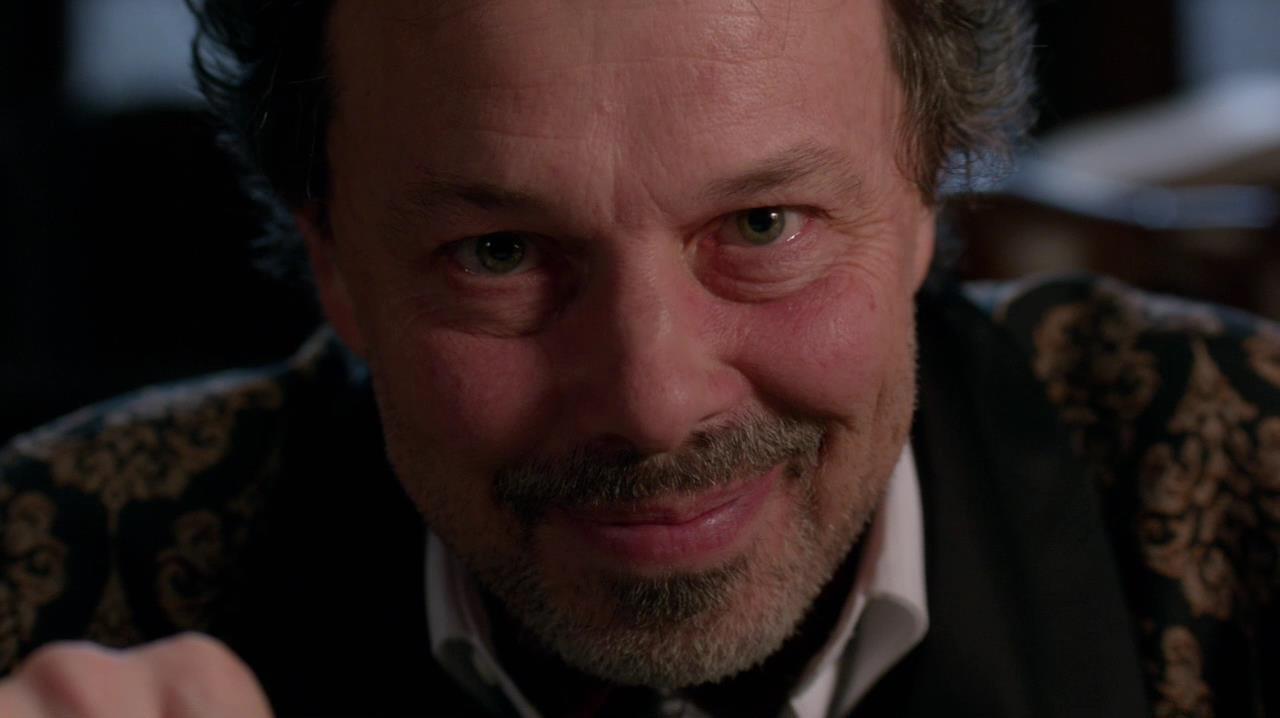
You Are The Villain. I’m The Hero
We are all the heroes of our own stories. We’re invested in being the hero, because everything in our culture says the hero is right and honorable and the hero wins. If we’re NOT the hero, and especially if we oppose the hero, then we’re in the wrong and we’re going to lose – and that is untenable. No: we’re the heroes because we have to be the heroes. We have to believe we’re in the right. The only people who ever deliberately set out to be villains are mentally disturbed, are trying to establish their badassery cred with gangbangers or other criminal entities, or are exaggeratedly unreal characters in Bond flicks, superhero comics, or fantasy novels.
The psychological necessity for us each to be the hero of our stories is one of the primary reasons we find it so hard to converse with someone whose fundamental beliefs oppose ours. Beliefs are emotional, not rational. You can’t reason someone out of a position they didn’t reason themselves into; because of that, differing beliefs – being emotionally based – are not amenable to resolution through reason. And despite humans being able to reason, we’re crippled in employing it because the things we believe filter everything we observe. We humans are amazingly good at dismissing or disregarding as nonsense anything that disagrees with or even worse, disproves our core beliefs; being able to exclude that information means we don’t seriously address it. We’re also gifted at believing logically contradictory things without consciously recognizing the inherent contradiction: that’s the basic definition of cognitive dissonance, in which we find ways to be comfortable by persuading ourselves that no conflict exists. To do that, we may redefine the value of one of our beliefs, emphasize a different belief, or change our behavior to avoid the conflict.
And because of that, we can’t connect effectively with those whose mental reality is different from ours unless we can find a way to not make them the villains of our story in the process. If we can let them remain heroes in their own minds, they are more likely to hear us; if they think we’re telling them they’re villains, they’ll dismiss us out of hand because they know that’s not the truth. That’s how human minds are built. Watch any debate on gun control, climate change, religion, civil rights, abortion, any issue that matters to people: you’ll see this playing out.
And here’s a place where Metatron – again! – was flat-out wrong: a hero does not need a villain in order to be a hero. Turning every story into hero-versus-villain, particularly in the context of human debates, is a recipe for warfare, deadlock, and stagnation.
All a hero needs to demonstrate heroism is adversity: a challenge to be faced, a problem to be solved with selfless courage and resolve. The woman who dives into the current to save a drowning child, the man who organizes a program to feed the homeless – both are heroes without villains. Obvious, straightforward villains who scheme deliberately to harm others are simple crutches for simple stories.
In real life, the real challenge – the real story – is finding solutions to problems that don’t require demonizing the people on the other side of the conflict. And anyone who can do that meets my definition of a hero.



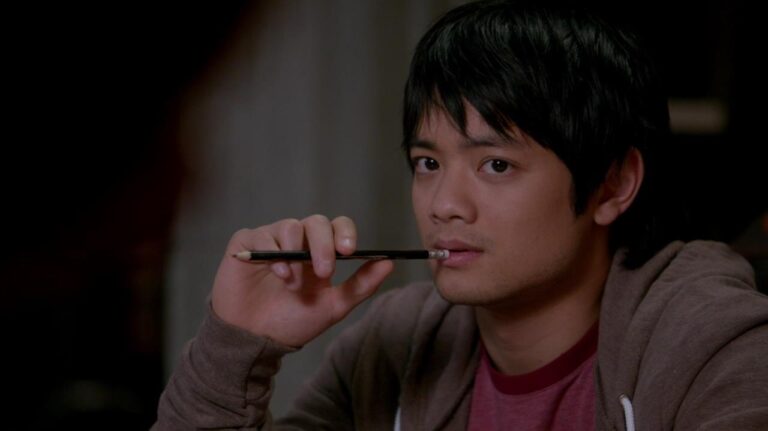
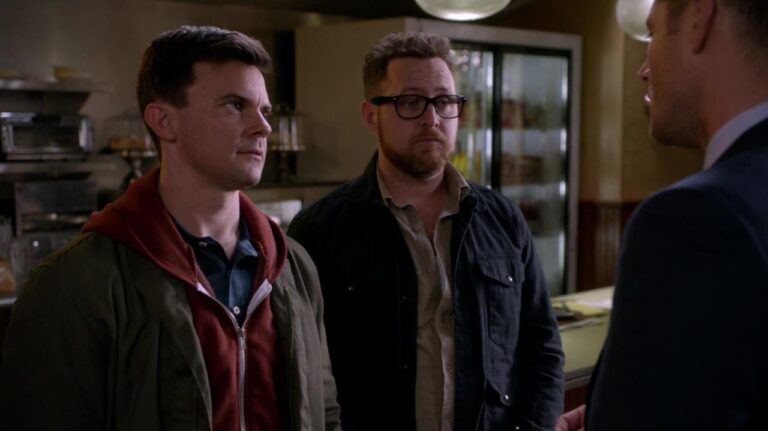



Insightful review thank you
Beautifully written! I love your take on the series as a whole and this episode in particular. Then you go one step further and apply it to our own everyday lives. It’s not just politicians and world leaders who could stand to learn a few lessons. The social media gives any user a potential bullhorn to demonize those who disagree with them. They are creating villains in order to continue to see themselves as heroes. My favorite discussions are calm, rational ones where both sides listen to opposing viewpoints and don’t spend the entire time forming counter arguments.
Back to the story, I agree that Metatron is creating villains so that he can be a hero. For me it’s almost as though he’s just bored, not fighting some deeply personal battle. I saw Lucifer as much more threatening. He didn’t just want to be released from the cage. He wanted to save the earth from us rascally humans. As much as I disagreed with him, I could understand why Lucifer came to be what he was. And of course I just love Mark Pellegrino 🙂
I just LOVE this! You are a total genius! As Mary said – the series, the episode and life. Rave review for your review!
Thank you for writing here. (Plus I love your fanfic. More please!)
Do you think that God is really an Angel urban legend and that God, like Castiel and now Metranon was really an Angel who had wrested control of Heaven?
That is a very creative thought!
Wouldn’t it be interesting to see who SPN thought God would be?
Just stumbled across your blog post. I am an MBA candidate and part time student support officer at Oxford Brookes University (UK) looking to join an education forum and community. I’m looking to interact with like-minded people who have a profound interest in education and learning. I have an interest in online learning delivery, VLE and technology based learning. MBA Dissertations ([url]”http://www.study-aids.co.uk/busman/busman.html”[/url]) Thanks again.